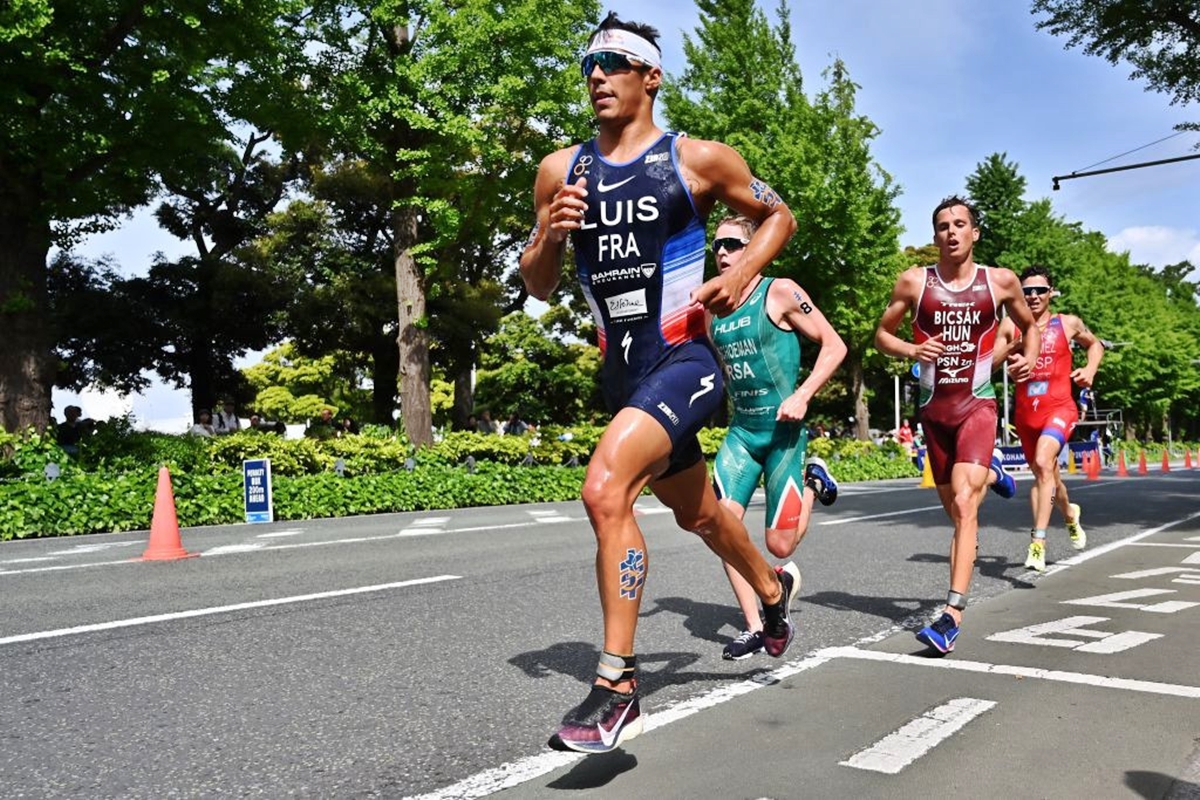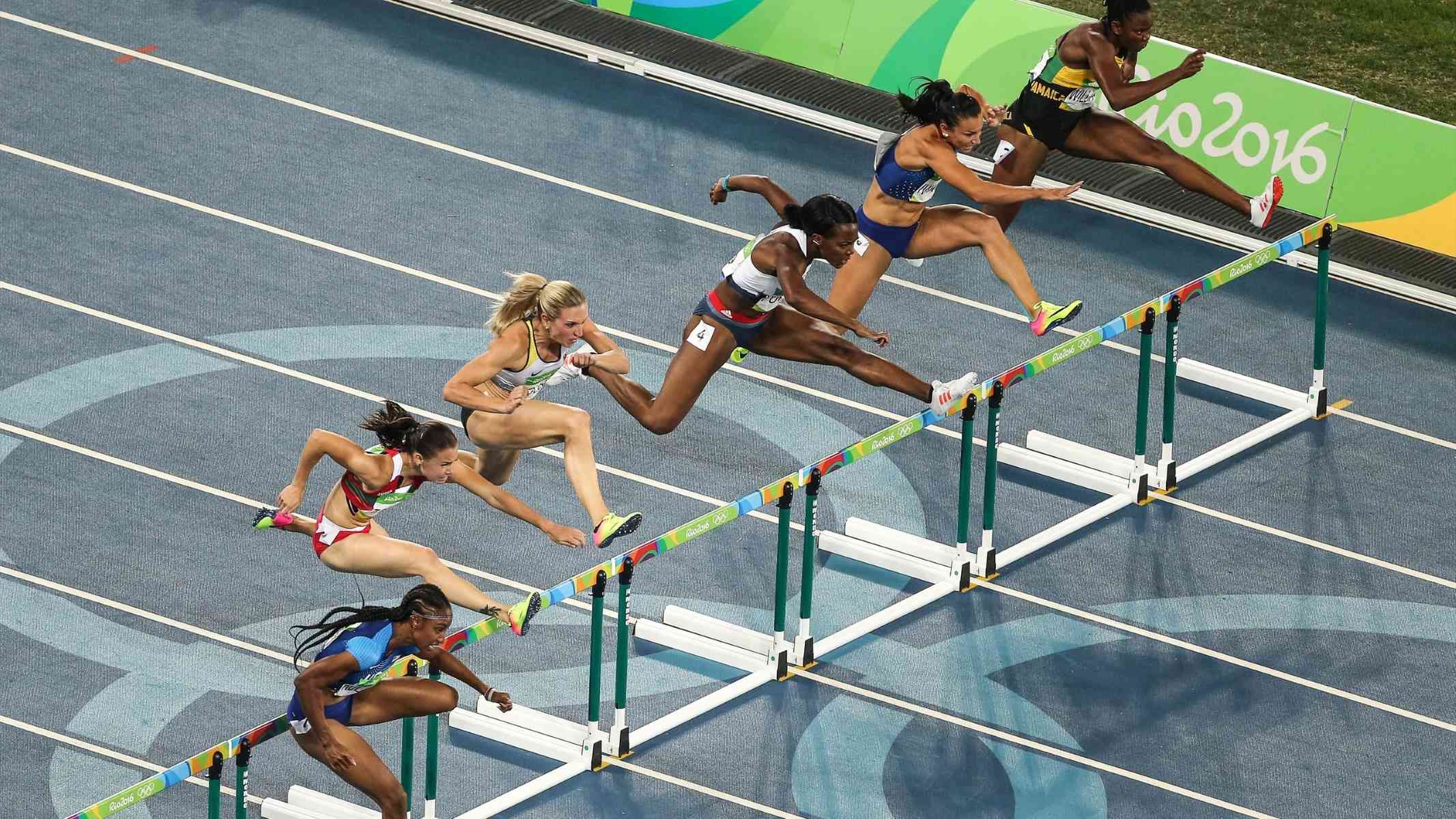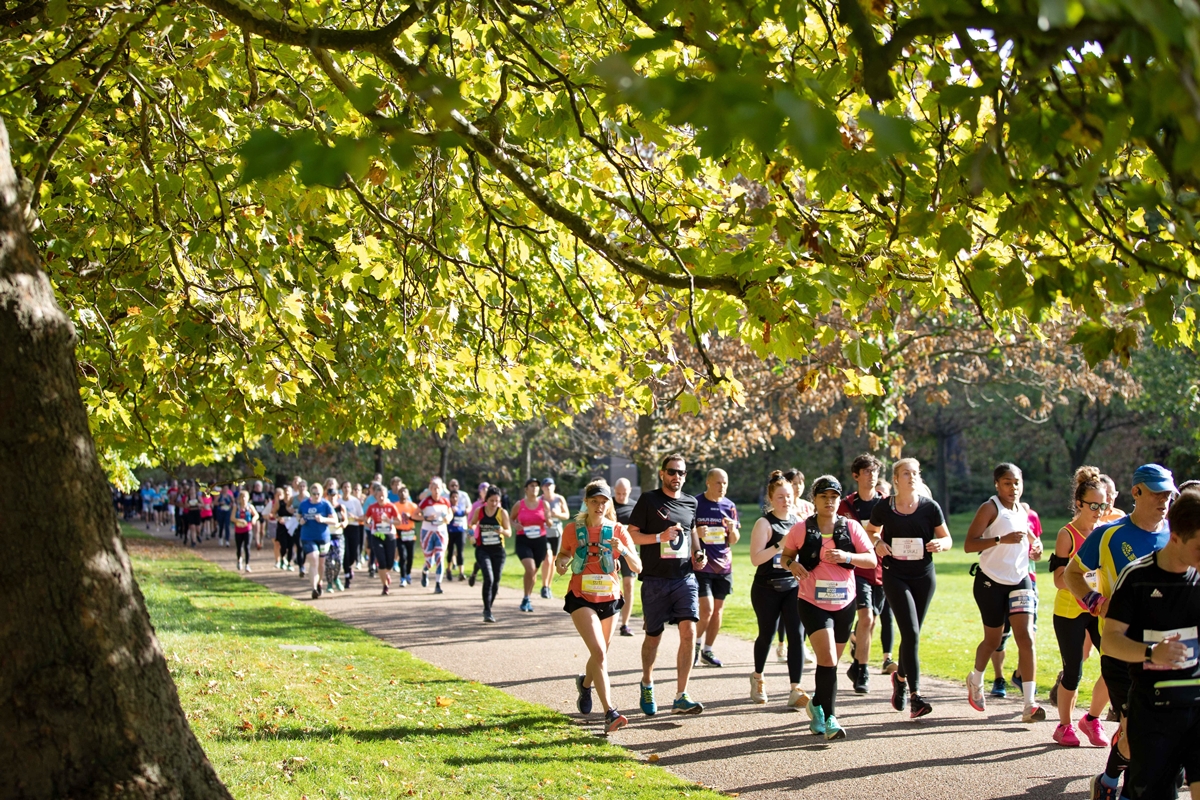Home>Misc>Featured>Proposed Mechanism By Which Ginseng Would Enhance Athletic Performance


Featured
Proposed Mechanism By Which Ginseng Would Enhance Athletic Performance
Modified: January 2, 2024
Discover the featured proposed mechanism of how Ginseng can enhance athletic performance. Enhance your performance with this natural boost.
Introduction
Ginseng, a traditional herbal plant native to East Asia, has long been celebrated for its potential health benefits. It is believed to possess various medicinal properties and has been used for centuries in alternative medicine practices. In recent years, there has been growing interest in the potential of ginseng to enhance athletic performance.
Athletes always strive to improve their performance and gain a competitive edge. They constantly explore different methods and supplements to boost their strength, endurance, and power. Ginseng, with its purported adaptogenic properties, has emerged as a popular natural supplement in the athletic community.
Although scientific research on the effects of ginseng on athletic performance is still limited, preliminary studies have shown promising results. Ginseng is thought to enhance physical performance by improving stamina, reducing fatigue, and increasing energy levels. Additionally, it may aid in post-exercise recovery and reduce oxidative stress.
In this article, we will explore the potential impact of ginseng on athletic performance. We will delve into its proposed mechanism of action and discuss its effects on endurance, strength, and power performance. It is important to note that while ginseng may have potential benefits, individual responses may vary, and it is crucial to consult with a healthcare professional before incorporating it into any training regimen.
Background on Ginseng
Ginseng, scientifically known as Panax ginseng, belongs to the Araliaceae family and is native to areas of East Asia, including China, Korea, and Siberia. It has been highly regarded in traditional Asian medicine for its potential health benefits.
There are different types of ginseng available, including Korean ginseng (Panax ginseng), American ginseng (Panax quinquefolius), and Siberian ginseng (Eleutherococcus senticosus). However, when referring to the potential effects on athletic performance, it is typically Korean ginseng that is of interest.
Ginseng is often referred to as an adaptogen, meaning it can help the body adapt and cope with stress. It is rich in bioactive compounds called ginsenosides, which are believed to be responsible for its medicinal properties. These ginsenosides have been found to have various effects on the body, including antioxidant, anti-inflammatory, and immune-boosting properties.
In addition to its potential health benefits, ginseng has also been studied for its potential role in enhancing physical performance. It is believed to have the ability to increase energy levels, improve stamina, and reduce fatigue, making it an appealing supplement for athletes.
It’s worth noting that ginseng is available in various forms, including extracts, powders, capsules, and teas. The dosage and form of ginseng can vary depending on the product and individual needs. It is important to follow the recommended dosage provided by the manufacturer or consult with a healthcare professional.
While ginseng is generally considered safe for most people when taken in recommended doses, it is not suitable for everyone. It may interact with certain medications, such as blood thinners and antidepressants, and may not be suitable for individuals with certain medical conditions, including those with high blood pressure or hormone-sensitive conditions.
Now that we have explored the background of ginseng, let’s delve into the potential impact it may have on athletic performance.
The Impact of Ginseng on Physical Performance
Research on the potential impact of ginseng on physical performance, especially in athletes, is still in its early stages. However, preliminary studies suggest that ginseng may offer benefits in improving various aspects of physical performance.
One of the key areas where ginseng may have an impact is on endurance. Endurance performance refers to an athlete’s ability to sustain prolonged exercise or activity without experiencing fatigue. Ginseng has been shown to increase the production of adenosine triphosphate (ATP), a molecule that provides energy to the muscles. This increased energy production may lead to improved endurance and delayed onset of fatigue.
In addition to its effect on endurance, ginseng may also have an impact on strength and power performance. Strength refers to the maximum amount of force that can be generated by a muscle or group of muscles, while power involves the combination of strength and speed. Some studies have suggested that ginseng may enhance muscle strength and power output, potentially improving performance in activities such as weightlifting or high-intensity interval training (HIIT).
Ginseng may also play a role in post-exercise recovery. Intense exercise can lead to muscle damage and inflammation. Ginseng’s anti-inflammatory properties may help reduce exercise-induced muscle damage and promote faster recovery. Additionally, it has been suggested that ginseng may help reduce oxidative stress, which is a common side effect of intense physical activity.
It’s important to note that individual responses to ginseng may vary, and more research is needed to better understand its specific effects on physical performance. It’s also worth mentioning that the dosage and duration of ginseng supplementation may play a role in its effectiveness.
While ginseng may offer potential benefits in improving physical performance, it’s essential to remember that it is not a substitute for proper training, nutrition, and rest. It should be viewed as a complementary aid that may enhance the overall performance of an individual.
In the next section, we will explore the proposed mechanism of action through which ginseng may exert its effects on athletic performance.
Proposed Mechanism of Action
The exact mechanism by which ginseng exerts its effects on athletic performance is not fully understood yet. However, several proposed mechanisms have been suggested based on the available research.
One possible mechanism is ginseng’s ability to modulate the stress response in the body. Ginseng is known as an adaptogen, meaning it helps the body adapt to physical, mental, and environmental stressors. This adaptogenic property is believed to be due to the presence of ginsenosides, the bioactive compounds in ginseng. These ginsenosides have been shown to interact with various signaling pathways in the body, including the hypothalamic-pituitary-adrenal (HPA) axis, which regulates the stress response. By regulating the stress response, ginseng may help minimize fatigue and enhance performance.
Another proposed mechanism is the antioxidant and anti-inflammatory properties of ginseng. Intense physical exercise can lead to an increase in oxidative stress and inflammation in the body, which can impair performance and delay recovery. Ginseng contains compounds that have been shown to have potent antioxidant and anti-inflammatory effects. By reducing oxidative stress and inflammation, ginseng may help improve muscle function, reduce muscle damage, and facilitate recovery.
Furthermore, ginseng has been found to have effects on metabolism and energy production. It has been suggested that ginsenosides can enhance the activity of enzymes involved in energy production, such as ATP synthase, resulting in increased energy availability for physical performance. Additionally, ginseng may promote glucose uptake and utilization by muscles, providing a readily available energy source during exercise.
Moreover, ginseng has been shown to have vasodilatory effects, meaning it can widen blood vessels and improve blood flow. This improved blood flow may enhance oxygen and nutrient delivery to muscles during exercise, supporting increased endurance and performance.
It is important to note, however, that these proposed mechanisms are based on preliminary studies and more research is needed to fully understand the complex interactions of ginseng in the body and its specific effects on athletic performance.
Now that we have explored the proposed mechanisms, let’s move on to discuss the impact of ginseng on endurance performance.
Ginseng and Endurance Performance
Endurance performance is a critical factor for athletes involved in long-duration activities such as running, cycling, and swimming. Ginseng has shown potential in improving endurance performance through various mechanisms.
One way ginseng may enhance endurance is by increasing oxygen utilization. Research suggests that ginseng can improve the efficiency of oxygen uptake by the muscles during exercise. By facilitating oxygen transport, ginseng may delay the onset of fatigue and improve overall endurance capacity.
In addition, ginseng’s ability to enhance energy production may contribute to improved endurance. Studies have shown that ginseng can increase the generation of ATP, the primary source of energy for muscle contractions. This increased ATP production may help athletes maintain their energy levels for longer periods, ultimately enhancing endurance performance.
Ginseng’s adaptogenic properties may also play a role in endurance performance. Intense exercise can induce stress on the body, leading to an increased release of stress hormones like cortisol. Ginseng has been found to help regulate the stress response by modulating the levels of cortisol, reducing the negative impact of stress on endurance performance.
Furthermore, ginseng’s antioxidant and anti-inflammatory effects are particularly relevant for endurance athletes. Prolonged exercise often leads to an increase in oxidative stress and inflammation in the body, which can impair performance and delay recovery. Ginseng’s ability to scavenge free radicals and reduce inflammation may counteract these negative effects and enhance endurance performance.
While research on the specific effects of ginseng on endurance performance is still limited, early studies have shown promising results. For example, a study published in the International Journal of Sports Nutrition and Exercise Metabolism found that ginseng supplementation improved time to exhaustion in a cycling time trial, indicating improved endurance capacity.
It’s important to note that individual responses to ginseng supplementation may vary. Factors such as dosage, timing, and duration of supplementation, as well as individual variations in physiology, can influence the effectiveness of ginseng in improving endurance performance. As always, it is advisable to consult with a healthcare professional before incorporating ginseng or any other supplements into your training regimen.
Next, we will explore the potential impact of ginseng on strength and power performance.
Ginseng and Strength and Power Performance
Strength and power performance are critical components of athletic performance, particularly in sports that require explosive movements such as weightlifting, sprinting, and jumping. While the research on ginseng’s impact on strength and power performance is still limited, early studies suggest that it may offer some potential benefits.
Ginseng’s adaptogenic properties might contribute to improved strength and power performance. By modulating the stress response, ginseng can help athletes better adapt to the demands of high-intensity training, potentially leading to enhanced muscular strength and power output.
Furthermore, ginseng has been found to have an impact on muscle function and fatigue. It has been suggested that ginseng can increase the storage and utilization of glycogen, a key energy source for high-intensity activities. By ensuring an adequate energy supply to working muscles, ginseng may support improved strength and power performance.
Ginseng may also influence muscle protein synthesis, the process responsible for muscle repair and growth. Studies have shown that ginseng can enhance insulin-like growth factor-1 (IGF-1) signaling, which plays a crucial role in muscle protein synthesis. This effect may contribute to increased muscle mass and enhanced strength and power performance.
Additionally, ginseng’s anti-inflammatory properties may have a positive impact on strength and power performance. Intense exercise can trigger muscle damage and inflammation, which can impair muscle function and delay recovery. Ginseng’s ability to reduce inflammation and promote faster recovery may aid in maintaining optimal strength and power output.
While research on the specific effects of ginseng on strength and power performance is still developing, a study published in The Journal of Strength and Conditioning Research found that ginseng supplementation resulted in improved lower body muscular strength in resistance-trained men.
It is worth noting that the dosage and duration of ginseng supplementation may play a role in its effectiveness for improving strength and power performance. As with any supplement, it is essential to consult with a healthcare professional before incorporating ginseng into your training regimen.
Next, we will explore other factors that can influence athletic performance in addition to ginseng supplementation.
Other Factors Influencing Athletic Performance
While ginseng supplementation may offer potential benefits in enhancing athletic performance, it is important to remember that it is not a standalone solution. Several other factors play a crucial role in determining an athlete’s performance and should be considered alongside ginseng supplementation.
1. Training: The quality, intensity, and specificity of training are fundamental to improving athletic performance. Consistent and well-designed training programs tailored to the athlete’s sport and goals are essential for optimal performance.
2. Nutrition: Proper nutrition is vital for fueling the body, supporting energy production, and facilitating recovery. A well-balanced diet that includes an adequate intake of macronutrients (carbohydrates, proteins, and fats) and micronutrients (vitamins and minerals) is crucial for athletes.
3. Sleep and Rest: Sufficient sleep and rest are essential for recovery, muscle repair, and overall physical and mental well-being. Athletes should prioritize high-quality sleep and incorporate rest days into their training schedules.
4. Mental Preparation: Mental factors such as focus, motivation, and confidence can significantly impact athletic performance. Techniques such as visualization, goal setting, and mindfulness can help athletes optimize their mental state during training and competition.
5. Injury Prevention and Rehabilitation: Injuries can significantly hinder athletic performance. Adequate warm-up, conditioning, and proper form during exercises can help prevent injuries. Additionally, proper rehabilitation and therapy are essential for injured athletes to regain strength and return to peak performance.
6. Genetic Factors: Every individual has unique genetic makeup that can influence their athletic abilities. While genetics cannot be changed, understanding one’s genetic strengths and weaknesses can help athletes tailor their training programs accordingly.
7. Game Strategy and Tactics: In team sports, a well-developed game strategy and the ability to adapt to different game situations can have a significant impact on performance. Understanding the sport, analyzing opponents, and making effective decisions on the field can give athletes an edge.
It is important to recognize that ginseng supplementation should be viewed as a complementary aid in conjunction with these other factors. It is always advisable for athletes to consult with a healthcare professional or a sports nutritionist to develop a comprehensive approach that considers individual needs and goals.
Now, let’s conclude the article by summarizing the key points discussed.
Conclusion
Ginseng, with its long history of traditional use in East Asian medicine, has gained attention as a potential supplement to enhance athletic performance. Although research on the effects of ginseng on physical performance is still preliminary, it shows promise in improving endurance, strength, and power performance.
Ginseng’s adaptogenic properties, antioxidant and anti-inflammatory effects, and ability to enhance energy production are some of the proposed mechanisms through which it may exert its positive effects on performance. However, individual responses to ginseng supplementation may vary, and more studies are needed to fully understand its specific effects and optimal dosage.
It is crucial to note that ginseng supplementation should not replace other key factors influencing athletic performance. Proper training, nutrition, rest, mental preparation, injury prevention, and game strategy all play crucial roles in optimizing athletic performance.
Athletes should consult with a healthcare professional or sports nutritionist before incorporating ginseng or any other supplements into their training regimens. They should also consider their individual needs, goals, and potential contraindications before commencing supplementation.
In conclusion, while ginseng may offer potential benefits in enhancing athletic performance, it is just one piece of the puzzle. Combining ginseng supplementation with a comprehensive and holistic approach to training and wellness can contribute to improved athletic performance and overall well-being.
Remember, achieving optimal athletic performance is a multifaceted process that requires a combination of various factors working together in harmony.







